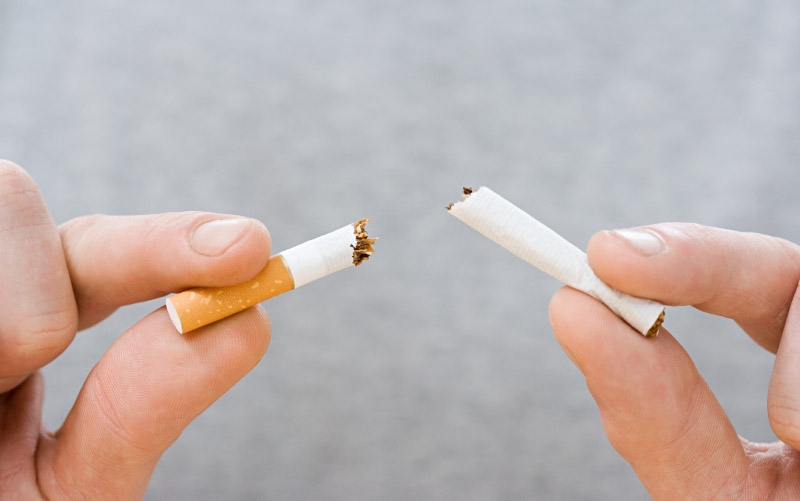Study: Nicotine patch safe for smokers while hospitalized for heart disease
By American Heart Association News

Nicotine replacement therapy appears to be a safe option for smokers hospitalized for heart disease, even for critically ill patients on their first day, according to a new study.
Researchers hope the findings will encourage doctors to prescribe nicotine patches or other replacement therapies more often during a window when patients are most open to quitting the deadly habit.
Nicotine replacement therapy is predominantly used in outpatient settings to reduce cravings and treat other common smoking withdrawal symptoms such as irritability, anxiety, difficulty concentrating and depression.
But a study published Friday in the Journal of the American Heart Association(link opens in new window) found that starting nicotine replacement therapy in the first two days of hospitalization did not affect a patient’s short-term outcome in death, length of stay, readmission or hospital expenses.
Only about 20 percent of heart attack patients get nicotine replacement prescriptions, researchers said.
“We said, ‘Let's figure out if it's hurting (patients) at all.’ And whether you add the nicotine patch or you don't, we weren’t finding anything harmful. We couldn’t find anything,” said Dr. Quinn Pack, a preventive cardiologist and the study’s lead author.
“This included patients who were in the ICU, in the throes of a heart attack or right after bypass surgery. These were very sick patients, some of them getting life-supporting medicine for their blood pressure,” said Pack, a fellow at the Institute of Healthcare Delivery and Population Science at Baystate Medical Center in Springfield, Massachusetts.
The study evaluated data on 27,459 smokers admitted to 270 hospitals for one of three reasons: a heart attack, bypass surgery or the insertion of a cardiac stent. More than half of the patients were in the intensive care unit.
About 18 percent of the patients – 4,885 people – received some form of nicotine replacement therapy within the first two days of hospitalization for three days. Most patients selected the patch, with a daily nicotine dosage equivalent to one pack of cigarettes. A few patients instead used nicotine gum, inhaler or lozenges. The researchers did not follow up to see whether patients ultimately quit.
It is the first study to look at using nicotine replacement for heart patients within their first two days of hospitalization. Other research in the past decade, however, already suggested the therapy would be safe in the intensive care unit, during admission for acute coronary syndrome, or immediately upon hospital discharge.
“It seems counterintuitive, but we know that much of the risk from smoking doesn’t come from the nicotine itself, but other byproducts that come from the burning end of a cigarette,” said Dr. Kevin Woolf, a cardiologist who wasn’t involved in the new study but has researched the effects of nicotine replacement therapy on heart patients upon their hospital discharge.
Woolf, who works in private practice in Hillsboro, Oregon, said “there’s enough observational data” showing that nicotine replacement after a heart attack is safe. In fact, the benefits of getting patients immediately off tobacco products probably outweigh any risk from the replacement therapy.
“Getting a head start, right off the bat in the hospital and out the door, is going to be absolutely key in our ability to assist patients with quitting,” Woolf said. “Seizing these psychological moments, when somebody is nervous from their heart attack and may be more able to overcome their addiction, is important.”
The study stressed the same point, noting that a majority of smokers who try to quit relapse within two weeks after being discharged from the hospital.
“The ultimate goal is to show that (using nicotine replacement in the hospital) isn't harmful, so if you think it's going to help your patient quit smoking, absolutely go ahead and use it,” Pack said. “Studies suggest that most of the time these medicines are pretty good. These are no silver bullets, but they can help take the edge off the withdrawal and help reduce cravings at least a little.”
If you have questions or comments about this story, please email [email protected].





